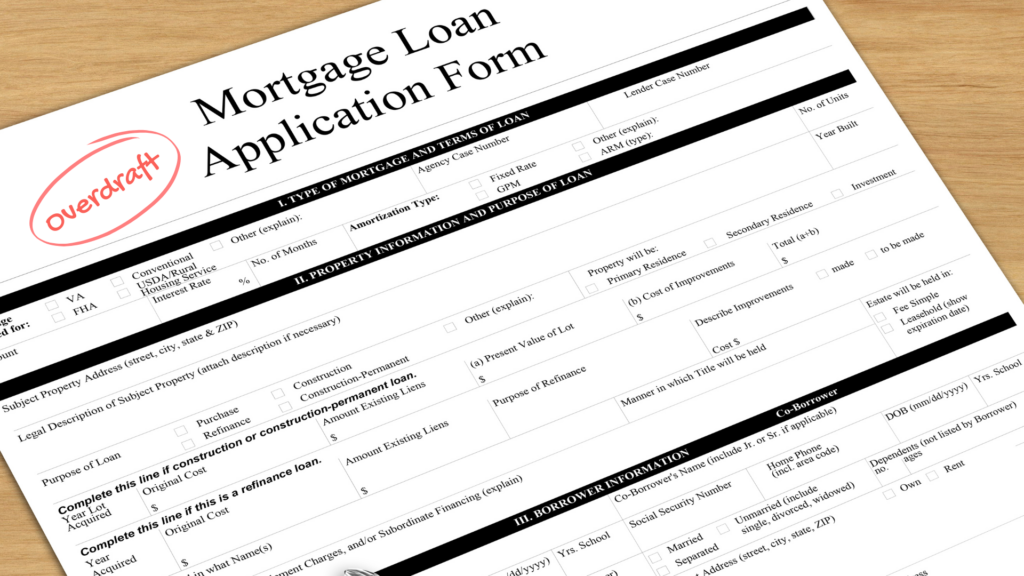- What Is a 3 Times Salary Mortgage?
- How Much Can You Borrow with a 3 Times Salary Mortgage?
- Can You Borrow More Than 3 Times Your Salary?
- Which Lenders Offer Higher Income Multiples?
- What Other Factors Affect How Much You Can Borrow?
- How to Improve Your Chances of Borrowing More
- Key Takeaways
- The Bottom Line: Next Steps
Mortgages 3 Times Salary: Everything You Need To Know

When you’re buying a home, one of the first things you’ll want to know is, “How much can I borrow?“
In the UK, it’s common to hear about a “3 times salary mortgage,” which means you could borrow three times your yearly pay.
But with property prices rising and saving for a deposit getting harder, you might wonder if it’s enough.
In this article, we’ll explain what a 3 times salary mortgage is, how it works, and what to do if you need to borrow more.
Ready?
What Is a 3 Times Salary Mortgage?
A 3 times salary mortgage is simply a type of mortgage where the lender offers to lend you an amount that is three times your annual income.
For example, if you earn £30,000 per year, a lender might offer you a mortgage of £90,000.
This method, known as a mortgage income multiplier, is a quick way for lenders to estimate how much you might be able to borrow based on your income.
But, it’s important to note that while this might be a starting point, it’s not the only factor lenders consider.
Lenders also look at your overall financial situation, including your credit history, monthly outgoings, and the size of your deposit.
In some cases, you might be able to borrow more than three times your salary, especially if you have a strong financial profile.
How Much Can You Borrow with a 3 Times Salary Mortgage?
The amount you can borrow with a 3 times salary mortgage depends on your income.
Here’s a quick look at what different incomes might allow you to borrow:
| Annual Salary | 3 Times Salary Mortgage |
|---|---|
| £20,000 | £60,000 |
| £30,000 | £90,000 |
| £40,000 | £120,000 |
| £50,000 | £150,000 |
| £60,000 | £180,000 |
These numbers give you a basic idea, but the actual amount you can borrow might vary depending on the lender and your financial situation.
Some lenders may offer 4, 4.5, or even 5 times your salary, especially if you have a large deposit, excellent credit, or a stable job in a respected profession.
Can You Borrow More Than 3 Times Your Salary?
Yes, you can borrow more than 3 times your salary.
As we’ve discussed, many lenders in the UK offer higher income multiples, especially if you have a strong financial profile.
Some lenders might offer up to 4.5 or even 5 times your salary, but you’ll need to meet certain conditions to qualify.
Lenders are more likely to offer higher multiples if you:
- Have a strong credit score.
- Are employed in a stable and well-paying job, particularly in professions like law, medicine, or finance.
- Have a large deposit, reducing the loan-to-value (LTV) ratio.
- Have minimal debt and a good track record of managing your finances.
- Have a stable UK residency history
- Maintain a strong savings history
- Have additional income sources from investments, rental properties, or side businesses.
While borrowing more might help you buy a pricier property, it also means higher monthly repayments and a more expensive mortgage overall.
Make sure you can comfortably afford these repayments before committing to a larger mortgage.
Which Lenders Offer Higher Income Multiples?
If you need to borrow more than three times your salary for a mortgage, you’ve got options.
High street banks like NatWest, HSBC, and Halifax often let you borrow up to 4.5 times your pay.
If you have a good financial record, they might even lend you five times your salary.
Some building societies, like The Teachers Building Society or Sainsbury’s Bank, might also lend more. They often like borrowers in steady jobs like teaching.
There are also lenders like Together or Newcastle Building Society who look at your whole financial picture, not just your salary.
If you have other income from rental or investments, or if you’re self-employed, they might be able to help.
To find the best deal, using a good mortgage broker is a good idea. They know lots of lenders and can find one that suits you.
What Other Factors Affect How Much You Can Borrow?
Your income is important, but lenders also look at other factors to decide how much you can borrow. Here’s what they consider:
Your Credit History
Your credit history is key. Lenders check your credit score to see how reliable you are with repayments.
A good credit history with on-time payments and low debt can help you borrow more.
If your credit history isn’t great, it might limit how much you can borrow or lead to higher interest rates.
Your Spending
Lenders look closely at your spending. This includes all your bills, debts like loans and credit cards, and other costs like childcare or car payments.
The lower your outgoings compared to your income, the better. This gives you more disposable income, making it easier to qualify for a larger mortgage.
Your Job
Having a steady job with a regular paycheck is great for lenders.
If you have a permanent job, especially in a field like law, medicine, or finance, you might be able to borrow more.
But if you’re self-employed or have a temporary job, things can be trickier.
Lenders might ask for more paperwork like tax returns and bank statements to check how much you earn.
Deposit Size
The size of your deposit matters. A larger deposit reduces the loan-to-value (LTV) ratio, which is less risky for lenders.
This could lead to better mortgage rates and increase your chances of borrowing more.
Debt-to-Income Ratio
Lenders will look at your debt-to-income (DTI) ratio, which compares your monthly debt payments to your monthly income.
A lower DTI ratio is better because it shows you have more income left after paying your debts, making you less risky in the eyes of lenders.
Most lenders prefer a DTI ratio below 43%, but the lower, the better.
A high DTI ratio could reduce the amount you can borrow or lead to higher interest rates, as lenders might see you as a higher risk.
Savings and Financial Reserves
Lenders like it when you have some extra money saved up. This shows you’re good with money and can handle unexpected costs.
Having savings makes you look like a better borrower because it’s less risky for the lender.
Property Type and Location
The type of property you want to buy and its location can affect how much you can borrow.
Lenders often think about the property’s resale value and the stability of the local housing market.
For example, they might be more cautious with non-standard properties, like flats above shops or homes with a history of structural issues, as these can be harder to sell.
Properties in less desirable areas might also lead to more conservative lending.
Age and Mortgage Term
Your age can affect how much you can borrow, particularly when it comes to the mortgage term.
Lenders prefer the mortgage to be repaid before you retire, so older borrowers might be offered shorter terms, reducing the amount they can borrow.
If you’re younger, you might have the option of a longer term, which could allow you to borrow more.
How to Improve Your Chances of Borrowing More
If you’re hoping to borrow more than 3 times your salary, there are steps you can take to improve your chances:
- Improve Your Credit Score. Pay off any outstanding debts, make sure you’re on the electoral roll, and ensure you pay all your bills on time. Regularly check your credit report for errors and correct them if necessary.
- Increase Your Deposit. The larger your deposit, the better. Consider saving more or looking into government schemes that might help you boost your deposit amount.
- Reduce Your Outgoings. Lenders like to see that you have disposable income left after paying your bills. Cutting down on unnecessary expenses or paying off debts can improve your affordability.
- Consider a Joint Mortgage. Applying for a mortgage with someone else, such as a partner, can increase the total amount you can borrow since both incomes will be considered.
- Work with a Broker. A mortgage broker can help you find lenders willing to offer higher income multiples or those who are more flexible in their assessments.
Key Takeaways
- A 3 times salary mortgage is a common method lenders use to estimate how much you can borrow, but it’s not a fixed rule.
- You might be able to borrow more than 3 times your salary, especially if you have a strong financial profile, a large deposit, and minimal debt.
- Factors like your credit history, monthly outgoings, and employment status play a big role in knowing how much you can borrow.
- Working with a mortgage broker can help you find the best deals, especially if you’re looking for higher income multiples or have a complex financial situation.
The Bottom Line: Next Steps
Buying a home is a big decision, and knowing how much you can borrow is key to making the right choice.
While a 3 times salary mortgage is common, it’s not your only option.
Your credit history, job stability, and deposit size all play a role in how much you can borrow.
Sorting through these details can feel overwhelming, but you don’t have to do it alone.
A good mortgage advisor can make the process easier by helping you find the best lender and mortgage deal for your needs.
If you want to find the right broker quickly, get in touch with us.
We’ll connect you with an experienced broker who can offer personalised advice and help you secure a mortgage that fits your situation.
Get Matched With Your Dream Mortgage Advisor...

Frequently asked questions
How can I increase the amount I can borrow?
Improving your credit score, increasing your deposit, reducing your outgoings, and applying for a joint mortgage can all help increase the amount you can borrow.
What is the maximum salary multiple I can borrow?
Some lenders offer up to 5 or 6 times salary, but this depends on your financial situation, including your credit score, income, and outgoings.
Is it better to borrow more than 3 times my salary?
While borrowing more can help you afford a more expensive property, it also increases your monthly repayments. It’s important to consider whether you can comfortably afford these payments.
Do lenders use income multiples when remortgaging?
Yes, lenders often use income multiples when you remortgage. They’ll look at your income, current mortgage balance, property value, and credit history.
If you want to borrow more during the remortgage, income multiples will help decide how much extra you can get.
If you’re just switching to a new deal without borrowing more, they’ll focus more on your credit and ability to pay.
Check with your lender or a mortgage broker to understand how they’ll review your remortgage application.
What is the best mortgage salary multiplier?
The best salary multiplier depends on your finances and the lender’s terms.
Most high street lenders offer between 4 to 4.5 times your salary, but some may go up to 5 or 6 times if you have a strong financial background.
This usually applies if you have a good credit score, a stable job, and a large deposit.
Remember, borrowing more means higher monthly payments.
It’s important to borrow only what you can afford. If you’re unsure, a mortgage advisor can help you find the right option.




